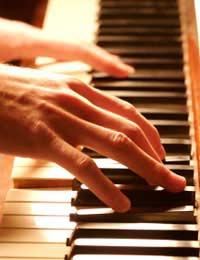Funding For Music Tuition

Recent studies suggesting that kids who study musical instruments can see a small boost in IQ levels has only increased the motivation for parents to help their children to study music. The traditional recorder lesson is now often replaced with piano, violin, trumpet, tuba and ever more glamorous musical instruments - but lessons do not come cheap, especially since they are ordinarily organised on a one to one basis.
Some children have the opportunity to learn in school, but these class-based lessons will normally not focus on one specific instrument, and will not allow the same rate of progress as an individual lesson would.
How Much Should a Lesson Cost?
The price of a music lesson will depend on a range of factors, including the number of teachers available (piano lessons will be easier to come by than piccolo lessons, for example, and may be cheaper due to that increased level of competition), the number of kids taking the lessons, the area of the country (London lessons tend to be pricier than in the regions and countryside), and the age of your child - younger kids require less expert tuition and the price will often reflect that.As a rough guide, you should expect to pay between £10-17 pounds for thirty minutes of music lessons, although many teachers offer a discount for bulk booking, say, ten lessons or a term’s course of lessons, so look into these. Note that singing lessons (or “voice coaching”) is often more expensive than other instrumental lessons, and can cost as much as £30 for a half hour’s tuition. It’s best to consider how you would be able to cover these costs before starting instrumental lessons for your child, since it will probably be more upsetting and disruptive to start and stop.
Saving Money From Music Lessons
There are a number of ways to look at cutting costs for music lessons. First, do a lot of research to find a teacher in your area who you are able to afford - check local libraries, music shops, and ask at the local council, because some are able to offer discounted after-school music lessons to pupils. The council, or local schools, often allow musical instruments to be borrowed, which will help lower the cost of taking up music.Another helpful idea to lower costs is to contact local music colleges. Although talented students here will usually not have a great deal of experience or qualifications in teaching music, they may be able to engage well with your child, if they are closer in age, and have recent experience in taking some of the music examinations that your child might consider entering. If you do go down this track, you should be able to negotiate a cheaper than average rate for lessons. But you might want to monitor the first few lessons to see how this arrangement is working out.
If you think your child has a particularly sparkling talent at music-making, it’s worth having him or her sit examinations at schools like Guildhall, which might subsidise lesson learning, or even provide free tuition. Likewise, some private tutors might offer to teach exceptionally talented students at a discount if parents can’t afford the standard price, although might expect a cut of future earnings!


Re: How I Funded My University Degree: A Case Study
Kak esehiko sminor k112 fundingeducation.co.uk
Re: What is the Adult Learning Grant and am I Eligible
Hi I'm looking at doing a level 2 dog grooming course but I'm on univsal credit and can not get it…
Re: Education With Company Sponsorship
Dear Sir or Madam, REF: APPLICATION FOR A SCHOLARSHIP Please read this letter until the end because everything which…
Re: Education With Company Sponsorship
Hello I live in Ethiopia currently I'm seeing some sponsorships for my education I'm looking sponsorships for my school…
Re: Paying for Private Tuition
Is there any help I can get for my 16 year old daughter for private tutoring I’m on full time sick,she struggles at school an her…
Re: About University Fundraising
I'm a UEA student I'm pursuing master's in MSC international business management I need help for my tution fees I'm desperately…
Re: Education With Company Sponsorship
I am a 20 year old graduate from Watford and I am emailing to ask for help to support my time at university. I have just…
Re: Education With Company Sponsorship
I am a 20 year old graduate from Watford and I am emailing to ask for help to support my time at university. I have just…
Re: Education With Company Sponsorship
I am a 20 year old graduate from Watford and I am emailing to ask for help to support my time at university. I have just…
Re: The Cost of Further Education Courses
Hello, I'm a single Mum, I'm 22 with a 1 year old little boy. I have wanted to go back to college to get some…